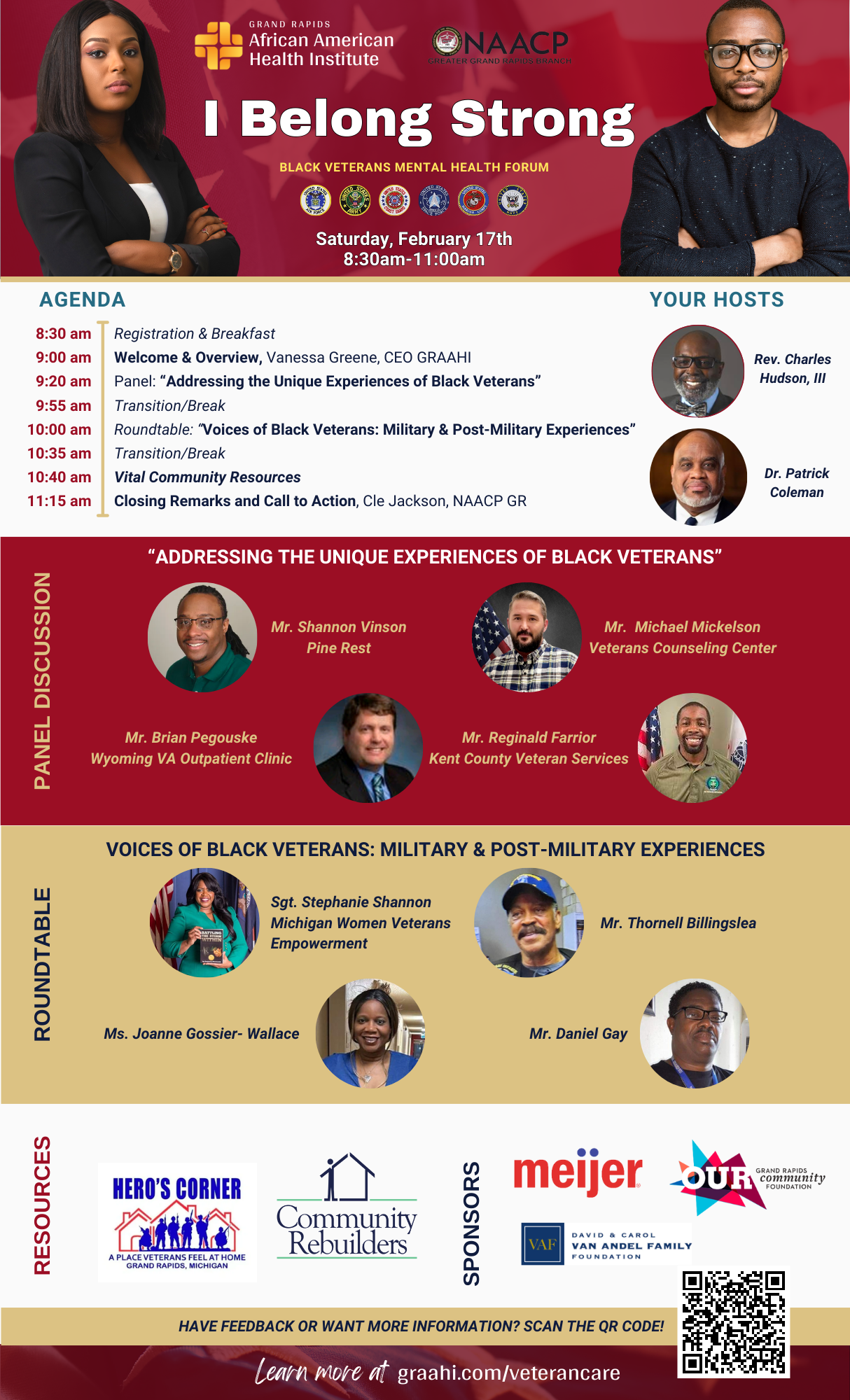Veteran Care
Kent County’s African American veterans deserve support. Poverty, health disparities, and COVID-19’s weight amplify existing mental health challenges. GRAAHI’s veteran care program offers a lifeline, with resources, a supportive community, and a forum to address anxiety, depression, and more. Join us in building a path to wellness for our heroes.
“I Belong Strong” Initiative for Black Veterans
According to the Veteran Administration estimates, there are about 1,600 Black veterans in Kent County, many who are negatively impacted by the most significant social determinants of health – including poverty, poor physical health; housing, food insecurity, discrimination, prejudice, social isolation, and mental health, including suicide risk. The effects of these issues impact service members and their families. In collaboration with the NAACP and numerous agencies, GRAAHI’s “I Belong Strong” program for Black Veterans is designed to provide support, resources, and services to Black veterans. Some components of this outreach program include: Mental Health Support Services, Holistic Support for Social and Economic Challenges, Cultural Competency Training for Service Providers, and Public Policy Forums.
- Collaboration with mental health professionals who have experience working with Black communities and understand the intersectionality of race, military service, substance abuse disorder, suicide, and other mental health challenges.
- Provide education and outreach programs to reduce the stigma surrounding mental health issues within the Black Veteran community.
- Weekly opportunities for individual and group support and guidance.
- Comprehensive support services addressing social determinants of health such as unemployment, homelessness, and family dynamic among Black Veterans.
- Partnerships with housing agencies, community organizations, and employers to support the social, economic, and holistic needs of Black veterans and their families.
- Advisory committee composed of Black veterans, family members, and community advocates to provide insights and guidance on culturally competent service delivery.
- 2-3 training and workshops per year for service providers on trauma-informed approaches that acknowledge and address the impact of systemic racism, discrimination, and historical trauma on the mental health of Black veterans.
- 2-3 forums per year with policymakers, experts, advocates, and community members to raise awareness and drive policy change to address the unique needs and challenges faced by Black veterans and their communities.
Past Event





